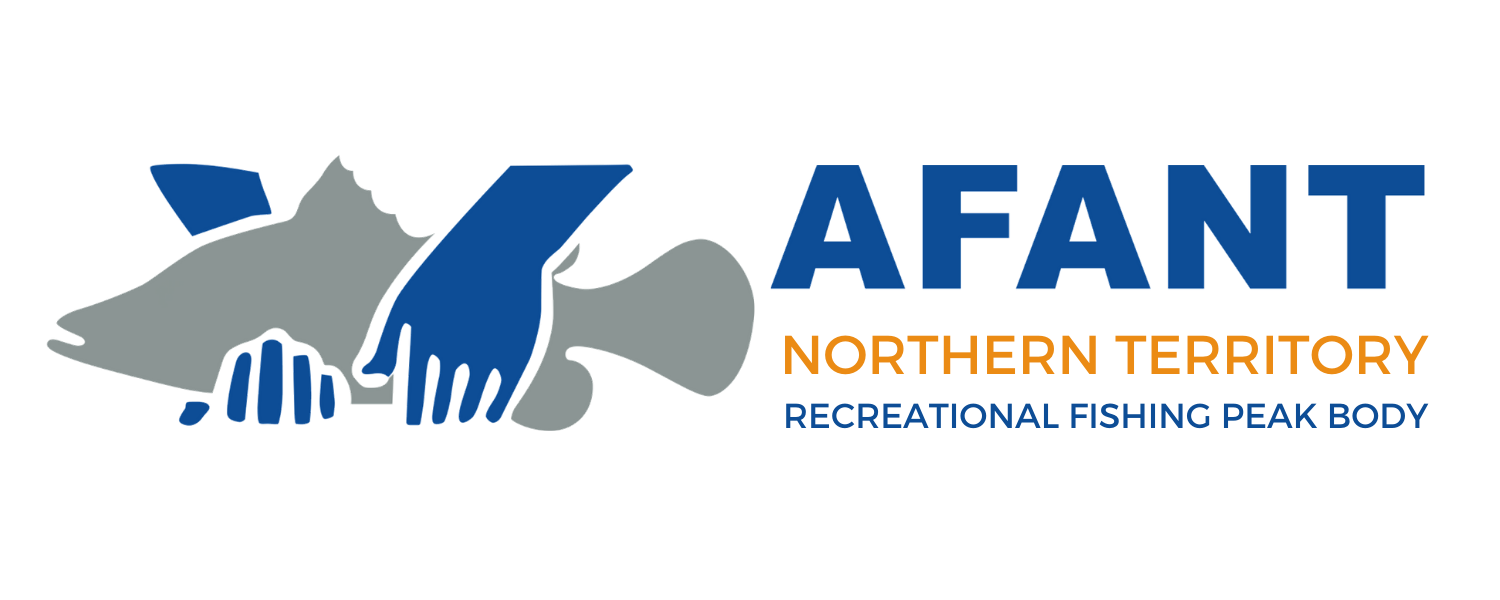A bright future for Barra fishing in the NT is now assured with bipartisan commitments made on fishery reform, including a gillnet ban and commercial licence buybacks.
A major milestone has been reached with commitments by both major NT political parties to phase out the use of gillnets in the commercial barramundi fishery, to buy out licences, and to send a strong message that the NT will remain the best place in the world to fish for wild barramundi long into the future.
In response to AFANT’s election policy questionnaire and a fishery reform campaign we’ve led since the beginning of the year, NT Labor was the first to respond, committing to support recreational fishing, to phase out the use of gillnets in the fishery over the next four years if re-elected, and allocating $15M to buy back commercial licences.
Chief Minister Eva Lawler and Minister for Recreational Fishing Joel Bowden invited AFANT and the NT Guided Fishing Industry Association to a press event where they announced their policy position on the morning of June 18.
In a Labor press release the Chief Minister said ““We want to give our fishos the best chance of bagging the biggest Barra and that’s why we will work with the commercial sector to ban gillnets for Barramundi fishing and buy back licences”, while the Minister for Recreational Fishing said “The Territory is the best place in the world to wet a line and this will protect our rec fishing industry for years to come.”


At lunchtime the commitment became bipartisan, with Shadow Fisheries Minister Josh Burgoyne telling the NT Country Hour that the CLP also “support phasing out the use of gillnets” in the Barramundi fishery, and that they would “work closely with the commercial industry to find a fair and equitable solution within four years”. This was followed by a media statement from the CLP including comments from the Shadow Minister for Recreational Fishing Gerard Maley, In an interview the following day, Opposition Leader Lia Finocchiaro told Katie Woolf “We know recreational fishing is critically important, to our lifestyle, to our tourism industry, it’s a really important part of the Territory, and so it has to be protected, and that’s why going forward we need to transition away from that use of gillnets.”
AFANT have been leading calls for major barramundi policy change since it became apparent that the Barramundi fishery management review was not heading in a suitable direction and was not designed to respond appropriately to major access losses in the commercial fishery. Recent commercial fishing area closures resulted in too much gillnet being squeezed into a few remaining open catchments (mostly the Daly, Roper and Moyle). With the Daly River already very popular for fishing with locals, tourists and hosting major fishing competitions, and with the Roper River hosting iconic adventure fishing experiences, leaving these catchments under threat from increased commercial fishing pressure was unthinkable. This situation represented a genuine challenge to the NT’s status as the best place to fish for barramundi.

Since February, AFANT had been seeking an end to the uncertainty facing our community and our valuable industry. We’ve been heavily engaged with both Labor and the Country Liberal Party having countless meetings and conversations. We also engaged with the media and the broader community to explain the issues and to highlight the serious need for policy change in order for the NT to safeguard the future of our $270M recreational fishing and tourism industry, along with the 2,500 full time jobs it supports.
We would like to thank the NT Guided Fishing Industry Association for working tirelessly in partnership with us to professionally and effectively communicate the rationale and opportunity for policy reform to political leaders, industry, and the broader community.
Thanks also go to our members, supporters and sponsors for their support, as well as to Keep Top End Coasts Healthy for their work bringing attention to the ecological challenges and risks to threatened, protected and endangered species associated with barramundi gillnetting in the Top End. Our thanks go also to the organisers, sponsors, and attendees of the Carefish lunch event, which was an important opportunity to demonstrate business, industry, and community support for a strong and valuable NT recreational fishing industry.
Finally, our thanks go to everyone who took and interest in, and who supported the policy changes we have been seeking.

We are thrilled to now have strong commitments to reform the barramundi fishery over the next few years. This will be key to supporting a bright recreational fishing future and the reform will also provide new opportunities for the NT Government to work with Traditional Owners on a new gillnet free commercial barramundi fishery. The reform process must be respectful and appropriately resourced, and members of the recreational fishing community (and broader NT community) should not lose sight of the fact that reforms like this can have impacts on real people, and that they too need to be supported through the transition and reform process.

In our engagement with the major parties, the NLC and the Aboriginal Sea Company, we have made it clear that AFANT would support a lower volume, less concentrated and gillnet-free commercial barramundi fishery. One that is focussed on quality and provenance. We want people who live in and who visit the Territory to be able to have access to wild-caught barramundi (and threadfin salmon), but it must be situated as a premium product, reflective of its social, economic and cultural values, as well as its potential on the plate when cared for, as has been seen with line-caught barra in QLD.
Both parties have been clear that the Aboriginal Coastal Licence, a limited volume, developmental licence, which may allow the of use up to a 200m length of net (must be attended at all times and can only be used by Traditional Owners in their waters) is not the target of this policy decision.
Of course, while barramundi fishery reform was certainly the major issue on the agenda, AFANT have put a comprehensive policy questionnaire to the major parties contesting the 2024 NT Election. Responses are expected by the end of July, with the answers provided to the community in early August. If you haven’t caught up with the 2024 Election Policy Questionnaire, check it out now.
We are pleased to have ensured that as the major parties head into the 2024 election they are giving due consideration to the polices and investments required to support a bright future for recreational fishing.

Barra in the focus: An opinion piece by NT Chief Minister Eva Lawler in the NT News On Friday June 21, 2024


Recent Comments